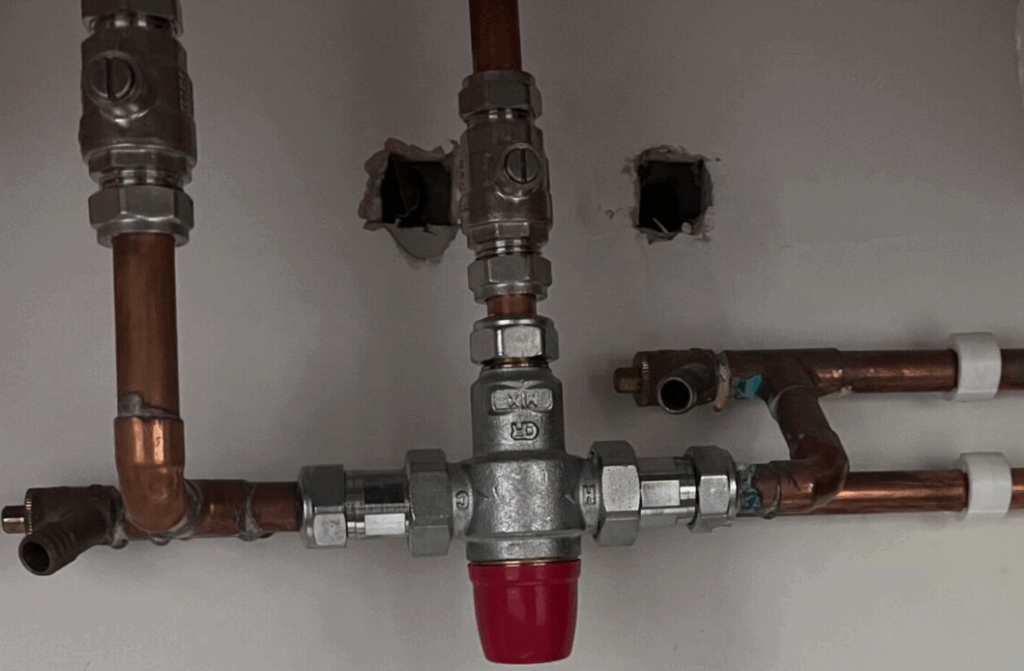Thermostatic mixing valves (TMV) are devices fitted to water systems to prevent the user from being scalded from the hot water.
HSG 274 Part 2 recommends that hot water is stored as close as practicably possible to a minimum temperature of 60⁰C. Where hot water is stored at this temperature, we know that we are not giving the bacteria population in the water a chance to proliferate, and it is likely that they will be killed off. This is one of the basic rules of legionella control in a hot water system.
Many building owners and operators juggle with the recommendation of hot water being stored at 60⁰C and preventing occupants being scalded when system is being used. To overcome this a TMV is fitted to the outlet which blends hot and cold water together to supply at a temperature that won’t scald the user.
Sounds like a great idea, no?
Well, they are a great idea when they are fitted in the correct places. A scald risk assessment should be carried out and if hot water is being exposed to the following groups/categories then some form of thermostatic control should be considered:
- Whole body immersion
- Use by individuals with mobility impairment
- Use by individual with sensory impairment
- Use by elderly, infants or children
- Use by any other individuals who cannot react appropriately, or quickly enough, to prevent injury
- Use by individuals with learning difficulties or mental health conditions (e.g. a tendency to self harm or dementia)
- The potential to use hot water as a means to harm others (e.g. prisons, mental health units)
The drawbacks associated with TMV’s are many; catastrophic failure, regular monitoring and maintenance, increase of microbiological activity and cost being a few. There are alternatives however and, in some instances, the TMV can simply be removed as it is deemed surplus to requirements.
Where some form of thermostatic mixing is required, then there are alternatives to the standard TMV.
Sequential mixers, thermostatic mixing taps and intelligent outlets have far fewer drawbacks than traditional TMV’s. They are less likely to go wrong and require far less maintenance resulting in a cost saving.
If TMV’s are giving you a headache then get in touch with us and we can work out a plan to save time and money. Click here to get in touch.


